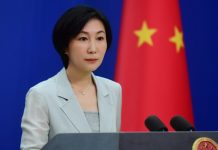Shanghai: Shanghai has issued a new policy package aimed at strengthening financing support for small and medium-sized enterprises to drive high-quality development, local officials said on Thursday.
The measures, comprising nine key initiatives, prioritize addressing bottlenecks impeding SMEs access to funding, said Tao Changsheng, deputy director of the Shanghai Municipal Financial Regulatory Bureau, at a press conference.
Tao said the measures mainly target at effectively implementing existing policies, amplifying new supportive policies, and deepening the coordination between financing supply and demand.
Four of the initiatives focus on implementing policies unveiled by central authorities to support high-quality economic growth through financial channels, said Tao.
These include extending loan renewal policies to cover all small and micro enterprises, with Shanghai aiming to achieve over 1 trillion yuan ($140.45 billion) in seamless loan rollovers in 2024.
Other policies aguide financial institutions to fully utilize tools such as relending, rediscounting, innovation loans and inclusive lending to channel more credit to SMEs. A coordination mechanism will be established to directly provide lists of SMEs with financing needs to banks by having a work group visit enterprises to collect requirements.
Complementing this, a duty-exemption mechanism for inclusive lending will also be improved to guide banks to increase credit extension and accelerate loan approvals.
Three initiatives involve strengthening municipal-level supporting policies and leveraging fiscal funds as incentives, said Tao.
Shanghai’s SME financing guarantee fund will be expanded to 120 billion yuan in 2024, with a 5 billion yuan carve-out for a science and technology innovation guarantee plan.
A new round of rewarding policies for SMEs loans will provide 1 billion yuan for SMEs in 2024-2025, removing bad loan compensation thresholds for key sectors such as technology while raising compensation rates to 55 percent. Fiscal interest subsidies will be optimized to enhance the inclusiveness of supportive policies and reduce the overall financing costs of enterprises. –The Daily Mail-China Daily news exchange item






